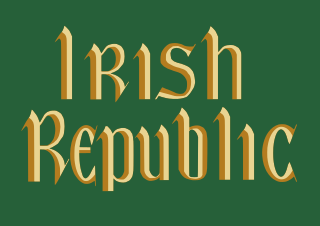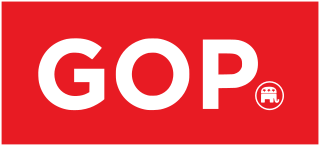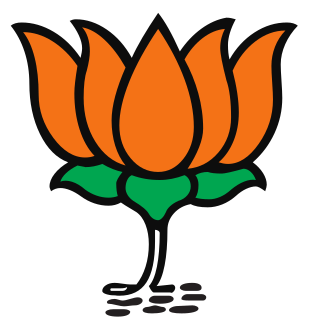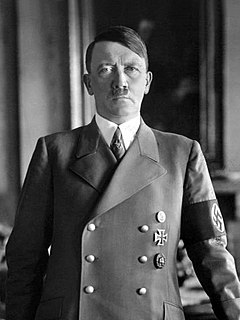
The Chinese Communist Party (CCP), officially the Communist Party of China (CPC), is the founding and sole ruling party of the People's Republic of China (PRC). Under the leadership of Mao Zedong, the CCP emerged victorious in the Chinese Civil War against the Kuomintang, and in 1949 Mao proclaimed the establishment of the People's Republic of China. Since then, the CCP has governed China with eight other parties as the leader of the United Front, and has sole control over the People's Liberation Army (PLA). Each successive leader of the CCP has added their own theories to the party's constitution, which outlines the ideological beliefs of the party, collectively referred to as socialism with Chinese characteristics. As of 2022, the CCP has more than 96 million members, making it the second largest political party by party membership in the world after India's Bharatiya Janata Party. The Chinese public generally refer to the CCP as simply "the Party".

The Nazi Party, officially the National Socialist German Workers' Party, was a far-right political party in Germany active between 1920 and 1945 that created and supported the ideology of Nazism. Its precursor, the German Workers' Party, existed from 1919 to 1920. The Nazi Party emerged from the extremist German nationalist, racist and populist Freikorps paramilitary culture, which fought against the communist uprisings in post–World War I Germany. The party was created to draw workers away from communism and into völkisch nationalism. Initially, Nazi political strategy focused on anti–big business, anti-bourgeois, and anti-capitalist rhetoric. This was later downplayed to gain the support of business leaders, and in the 1930s the party's main focus shifted to antisemitic and anti-Marxist themes.

Sinn Féin is an Irish republican and democratic socialist political party active throughout both the Republic of Ireland and Northern Ireland.

The United Kingdom is a unitary state with devolution that is governed within the framework of a parliamentary democracy under a constitutional monarchy in which the monarch, currently Charles III, King of the United Kingdom, is the head of state while the Prime Minister of the United Kingdom, currently Liz Truss, is the head of government. Executive power is exercised by the British government, on behalf of and by the consent of the monarch, and the devolved governments of Scotland, Wales and Northern Ireland. Legislative power is vested in the two chambers of the Parliament of the United Kingdom, the House of Commons and the House of Lords, as well as in the Scottish and Welsh parliaments. The British political system is a two party system. Since the 1920s, the two dominant parties have been the Conservative Party and the Labour Party. Before the Labour Party rose in British politics, the Liberal Party was the other major political party, along with the Conservatives. While coalition and minority governments have been an occasional feature of parliamentary politics, the first-past-the-post electoral system used for general elections tends to maintain the dominance of these two parties, though each has in the past century relied upon a third party, such as the Liberal Democrats, to deliver a working majority in Parliament. A Conservative–Liberal Democrat coalition government held office from 2010 until 2015, the first coalition since 1945. The coalition ended following parliamentary elections on 7 May 2015, in which the Conservative Party won an outright majority of seats, 330 of the 650 seats in the House of Commons, while their coalition partners lost all but eight seats.

The Republican Party, also referred to as the GOP, is one of the two major contemporary political parties in the United States. The GOP was founded in 1854 by anti-slavery activists who opposed the Kansas–Nebraska Act, which allowed for the potential expansion of chattel slavery into the western territories. Since the mid-1850s, it has been the main political rival of the Democratic Party.
The Conservative Party, officially the Conservative and Unionist Party and also known colloquially as the Tories, is one of two main political parties in the United Kingdom, alongside its primary rival since the 1930s, the Labour Party. The Conservative Party is the current governing party in the United Kingdom, having won the 2019 general election with an overall majority in the House of Commons. The party is on the centre-right of the political spectrum, and encompasses various ideological factions including one-nation conservatives, Thatcherites, liberal conservatives and conservative liberals. The party currently has 357 Members of Parliament, 257 appointed members of the House of Lords, 9 members of the London Assembly, 31 members of the Scottish Parliament, 16 members of the Welsh Parliament, 4 directly elected mayors, 30 police and crime commissioners, and approximately 7,500 local authority councillors. The party holds the annual Conservative Party Conference, at which party policies and prominent politicians can be showcased.

The Sweden Democrats is a nationalist and right-wing populist political party in Sweden. After the results of the 2022 Swedish general election, it is the largest member of Sweden's right-wing bloc and the second largest party in the next Swedish parliament. The party describes itself as social conservative with a nationalist foundation. The party has been variously characterised by academics, political commentators and the media as national-conservative, anti-immigration, anti-Islam, eurosceptic and far-right. The Sweden Democrats reject the far-right label, saying that it no longer represents the party's political beliefs.

The Bharatiya Janata Party is a political party in India, and one of the two major Indian political parties alongside the Indian National Congress. Since 2014, it has been the ruling political party in India under Narendra Modi, the incumbent Indian prime minister. The BJP is aligned with right-wing politics, and its policies have historically reflected a traditional Hindu nationalist ideology; it has close ideological and organisational links to the Rashtriya Swayamsevak Sangh (RSS). As of 17 February 2022, it is the country's largest political party in terms of representation in the Parliament of India as well as state legislatures.

The Indian National Congress (INC), colloquially the Congress Party but often simply the Congress, is a political party in India with widespread roots. Founded in 1885, it was the first modern nationalist movement to emerge in the British Empire in Asia and Africa. From the late 19th century, and especially after 1920, under the leadership of Mahatma Gandhi, the Congress became the principal leader of the Indian independence movement. The Congress led India to independence from the United Kingdom, and significantly influenced other anti-colonial nationalist movements in the British Empire. Due to its enduring history, the Congress is often called the "grand old party".

The Riksdag is the legislature and the supreme decision-making body of Sweden. Since 1971, the Riksdag has been a unicameral legislature with 349 members, elected proportionally and serving, since 1994, fixed four-year terms. The 2022 Swedish general election is the most recent held general election.

The Swedish Social Democratic Party, formally Sweden's Social Democratic Worker's Party, usually referred to as The Social Democrats, is a social-democratic political party in Sweden. Founded in 1889, the SAP is the country's oldest and currently largest party.

The Moderate Party, commonly referred to as the Moderates, is a liberal-conservative political party in Sweden. The party generally supports tax cuts, the free market, civil liberties and economic liberalism. Internationally, it is a full member of the International Democrat Union and the European People's Party.
The Liberals, known as the Liberal People's Party until 22 November 2015, is a liberal political party in Sweden. The Liberals ideologically shows a variety of liberal tendencies, including social liberalism, conservative liberalism, and economic liberalism. The party is a member of the Liberal International and Alliance of Liberals and Democrats for Europe.
The Conservative Party of Canada, colloquially known as the Tories, is a federal political party in Canada. It was formed in 2003 by the merger of the two main right-leaning parties, the Progressive Conservative Party and the Canadian Alliance, the latter being the successor of the Western Canadian-based Reform Party. The party sits at the centre-right to the right of the Canadian political spectrum, with their federal rival, the Liberal Party of Canada, positioned to their left. The Conservatives are defined as a "big tent" party, practising "brokerage politics" and welcoming a broad variety of members, including "Red Tories" and "Blue Tories".
An independent or non-partisan politician is a politician not affiliated with any political party or bureaucratic association. There are numerous reasons why someone may stand for office as an independent.

Adolf Hitler was an Austrian-born German politician who led Germany from 1933 until his death in 1945. He rose to power as the leader of the Nazi Party, becoming the chancellor in 1933 and then assuming the title of Führer und Reichskanzler in 1934. During his dictatorship, he initiated World War II in Europe by invading Poland on 1 September 1939. He was closely involved in military operations throughout the war and was central to the perpetration of the Holocaust, the genocide of about six million Jews and millions of other victims.

The Democratic Party is one of the two major contemporary political parties in the United States. Founded in 1828, it was predominately built by Martin Van Buren, who assembled a wide cadre of politicians in every state behind war hero Andrew Jackson, making it the world's oldest active political party. Its main political rival has been the Republican Party since the 1850s. The party is known as a big tent, with centrist, conservative, liberal, and progressive ideological factions. The party is traditionally less ideologically uniform than the Republican Party due to the broader list of unique voting blocs that compose it.
The Labour Party is a political party in the United Kingdom that has been described as an alliance of social democrats, democratic socialists and trade unionists. The Labour Party sits on the centre-left of the political spectrum. In all general elections since 1922, Labour has been either the governing party or the Official Opposition. There have been six Labour prime ministers and thirteen Labour ministries. The party holds the annual Labour Party Conference, at which party policy is formulated.

General elections were held in Sweden on 11 September 2022 to elect the 349 members of the Riksdag. They in turn will elect the prime minister of Sweden. Under the constitution, regional and municipal elections were also held on the same day. The preliminary results presented on 15 September showed the government parties lost their majority. The likely outcome of the election is that Ulf Kristersson, the leader of the Moderate Party (M), will become prime minister.














